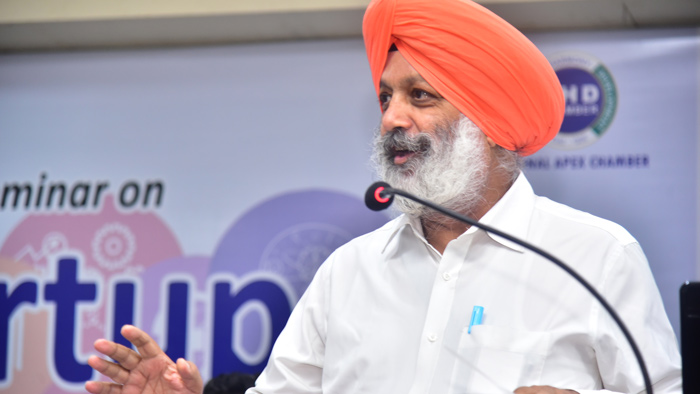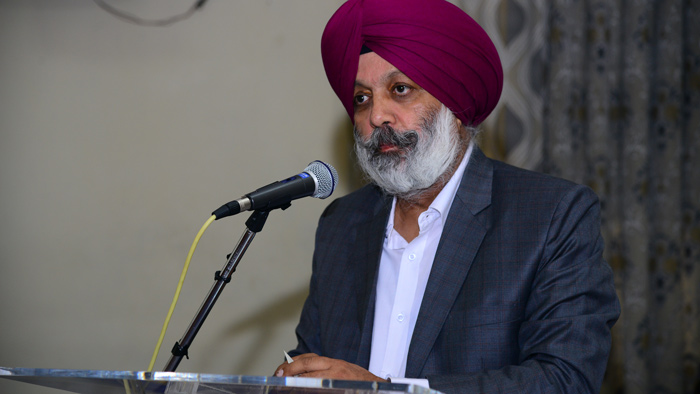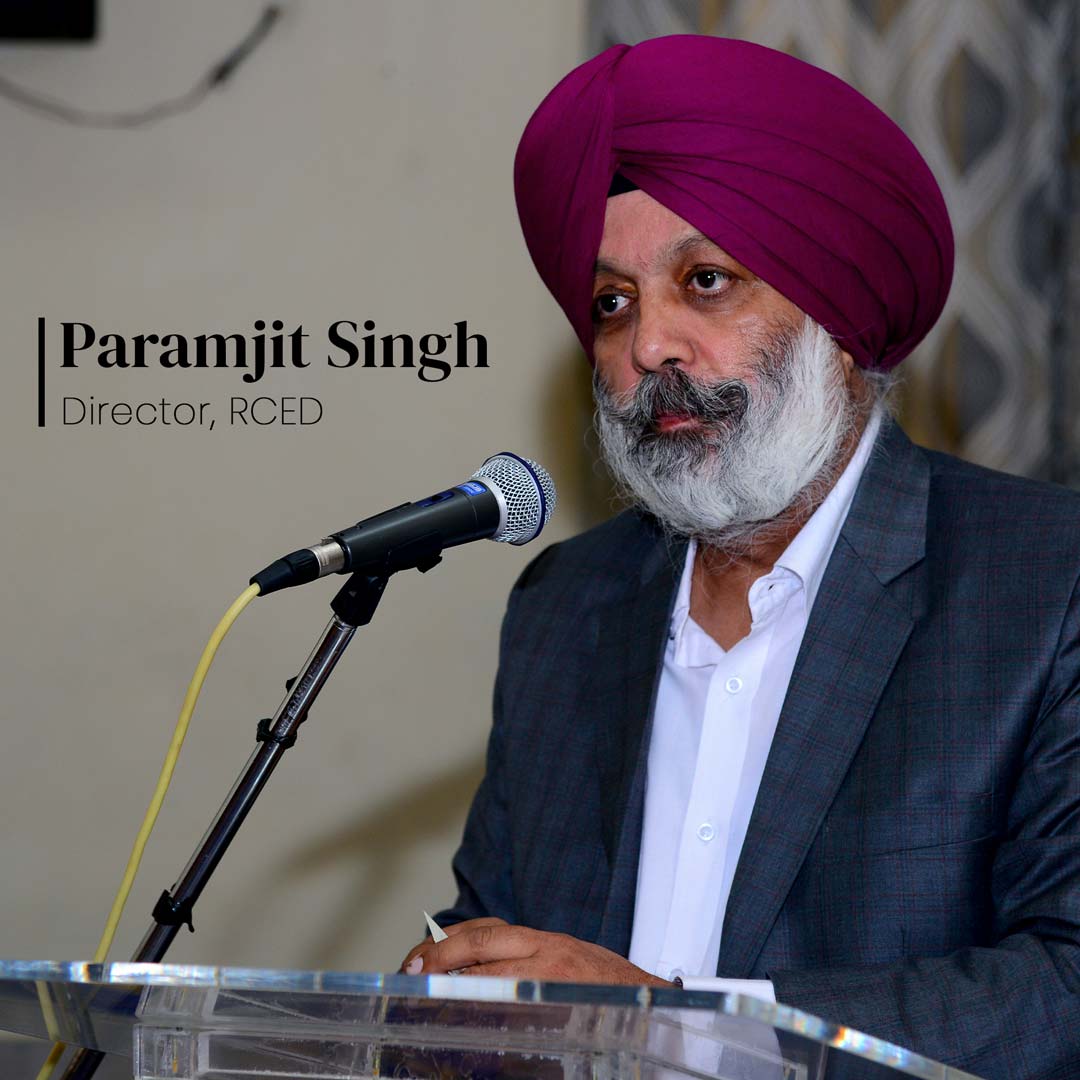CATEGORIES
Entrepreneurship | Leadership and Networking | People We AdmireOverview:
-
- Paramjit Singh founded RCED in 1995 to provide entrepreneurship and skill training.
- RCED focuses on empowering youth and promoting economic growth through value addition and diversification.
- Collaboration with government ministries, corporates, and educational institutions enhances RCED’s reach and impact.
- Despite challenges, including the COVID-19 pandemic, RCED remains committed to supporting entrepreneurs.
- Mr. Singh emphasizes the importance of embracing failure as a learning opportunity and fostering innovation.
1. What is the story behind starting RCED?
RCED, or the Regional Centre for Entrepreneurship Development, was born out of a deep-rooted passion for fostering entrepreneurship and empowering individuals. In 1995, I founded RCED with a vision to provide entrepreneurship and skill training, particularly focusing on rural youth. My journey towards establishing RCED began after completing my MPhil and securing a job in a bank. However, my heart remained in Shimla, and I was determined to channel my energies towards fostering entrepreneurship in my hometown. After navigating through various job changes and facing health challenges that compelled me to relocate to Chandigarh, I recognized the immense potential to inspire others to pursue entrepreneurship. This realization led me to establish RCED, driven by a commitment to empower youth and promote economic growth through skill development and entrepreneurship training.

2. What were your early online challenges and were there any mentors?
The early days of RCED were challenging, primarily due to financial constraints and societal skepticism towards entrepreneurship, especially in rural areas. However, my dedication to the cause and expertise in the field earned me recognition, including the prestigious ‘Best Trainer Motivator of the Country’ award in 1992. This validation fueled my determination to overcome obstacles and continue empowering aspiring entrepreneurs. My family members, mentors included esteemed teachers and supportive friends, as well as individuals like Professor N.S. Bisht, Dr. M.S. Jairath , Sh. Chandar Mohan (DST), Dr. N.P. Singh, Dr. Dinesh Awasthi (EDI), Mr. S.B. Sareen (EDI) . Their guidance and assistance were invaluable in shaping my journey and the development of RCED. Dr. H.L. Verma, Dr. S.S. Bedi and Dr. N.S. Tomar in particular, played a significant role in providing mentorship and contributing to the growth of the organization.
3. What is the focus of RCED’s programs and how it benefited people and business?
RCED’s programs revolve around skill development, entrepreneurship training, and women empowerment initiatives. We emphasize the importance of value addition and diversification to empower individuals economically, particularly in rural areas. Skill and entrepreneurship development became the cornerstone of RCED’s mission due to their potential to create sustainable livelihoods and contribute to economic growth. Over the years, RCED has made a significant impact on individuals and businesses alike, enabling many to realize their entrepreneurial dreams and achieve financial independence. What sets RCED apart is its holistic approach, combining skill development, mentorship, and collaboration to create a nurturing environment where individuals can thrive and succeed.
4. How does RCED collaborate with other organizations?
RCED collaborates with government ministries, corporates, banks, and educational institutions to conduct entrepreneurship and skill development programs across India. Through these partnerships, we aim to reach a wider audience and maximize the impact of our initiatives. By leveraging resources and expertise from various sectors, we can address the diverse needs of aspiring entrepreneurs and facilitate their journey to success.

5. How has RCED adapted during the COVID-19 pandemic?
The COVID-19 pandemic posed unprecedented challenges, but RCED quickly adapted its operations to continue providing support to entrepreneurs. We distributed essential equipment to healthcare facilities and embraced technology to conduct online training sessions. Despite the adversity, our commitment to empowering individuals remained unwavering, demonstrating our resilience and dedication to social impact.
6. What lessons have you learned about success and failure?
I believe that success and failure are not determined by external factors but by one’s mindset and approach. Aspiring entrepreneurs must embrace failure as a learning opportunity and continuously upgrade their skills to stay relevant in a dynamic environment. Moreover, resilience, adaptability, and a willingness to innovate are essential qualities for navigating the entrepreneurial journey. My advice to young aspiring entrepreneurs is to persevere through challenges, stay focused on their goals, and never lose sight of their passion and purpose.
7. How do you maintain a balance between your work and personal life and what is your vision for the future of RCED?
A typical day for me involves overseeing RCED’s operations, engaging with stakeholders, and strategizing for future initiatives. While my work at RCED is incredibly fulfilling, I prioritize time for family, relaxation, and personal interests to maintain a healthy work-life balance. Finding harmony between work and personal life is essential for overall well-being and sustained productivity. Additionally, I envision RCED playing a pivotal role in fostering entrepreneurship and driving economic growth in India. By leveraging government schemes, embracing technology, and collaborating with stakeholders, we aim to empower a new generation of entrepreneurs who will contribute to realizing the country’s missions of Make in India, Startup India, Standup India, Digital India, and Skill India. Our ultimate goal is to create a thriving ecosystem where entrepreneurship thrives, and individuals have the opportunity to fulfill their potential and make a meaningful impact on society.
8. Do you have any message to the Girl Power Talk and Youth?
My advice to those passionate about pursuing a career in social impact is to stay true to their values, remain resilient in the face of challenges, and never underestimate the power of collaboration and community engagement. The feedback about RCED has been overwhelmingly positive, with many individuals and organizations acknowledging its transformative impact on entrepreneurship and skill development. In terms of success and failure, I believe that failure is not fatal; it is a stepping stone towards success. One mantra that resonates with me is, “Success is not final, failure is not fatal: It is the courage to continue that counts.” Finally, I commend the Girl Power Talk team for their dedication to empowering young women and encourage them to continue their valuable work in creating a more inclusive and equitable society.
Conclusion:
Paramjit Singh’s journey and the evolution of RCED exemplify the transformative power of entrepreneurship in driving social and economic change. Despite facing numerous challenges, Singh’s unwavering commitment to empowering individuals and fostering innovation has enabled RCED to make a significant impact on countless lives. As RCED continues to adapt and expand its reach, it remains a beacon of hope for aspiring entrepreneurs, offering the tools, guidance, and support needed to turn dreams into reality. Through collaboration, resilience, and a shared vision for a better future, RCED continues to inspire and empower generations of changemakers, driving sustainable growth and prosperity across India.



